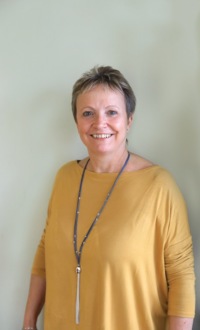My Approach
I am a Hampshire based Psychodynamic Psychotherapist and Family and Systemic Psychotherapist specialising in Trauma therapy and EMDR. I offer therapy to individuals, couples and families. I am committed to providing a safe and respectful space where clients can talk about their difficulties and where they can be supported to find solutions that fit with their beliefs and values.
My approach is flexible and person-centred, meaning that I see every client as a unique individual who is able to find their own solutions based on their unique experiences and circumstances. I adhere to NICE guidelines and treatment protocols whilst honouring the importance of the therapeutic relationship as a vehicle for transformation and change.
I work collaboratively with my clients, acknowledging and respecting their diversity of culture, religion, gender, sexual orientation, life experience and family background.
I am committed to safe and professionally accountable practice. I adhere to the ethics and standards of my professional body, the UKCP (United Kingdom Council for Psychotherapy) which requires regular supervision and ongoing professional and personal development through attendance at regular training.
Qualifications
MA Family and Systemic Psychotherapy
Diploma in Psychodynamic Psychotherapy
EMDR (Eye Movement Desensitisation and reprocessing) Level 3 (and EMDR Child training part 1)
DDP (Dyadic Developmental Psychotherapy) level 1
Foundation in marital and couples counselling
Post graduate Diploma in Heath Visiting
RGN (registered General Nurse)
Affiliations
Registered member of the UK Council for Psychotherapy
Member of the Association for Family therapy and Systemic Practice
Areas of Expertise
• Feelings of depression, grief or emptiness
• Anxiety or inability to cope, obsessive behaviour, panic attacks and phobias
• Coping with the effects of abuse
• Difficulties that result from accidents, illness, bullying or other traumas including PTSD (Post Traumatic Stress Disorder)
• Family relationship difficulties
• Difficulties in relationships between children and their parents including those between children and their adoptive parents or long-term foster carers.
• Emotional and behavioural difficulties in children and adolescents
• Couple relationship difficulties
• Sexual problems
• Gender identity concerns
• Lack of confidence and poor self esteem
• Self-harm
• Bereavement and loss
• Work-related issues
• Coping with stressful situations
Therapies Offered
I work therapeutically using a number of approaches described here including Family and Systemic Psychotherapy, Psychodynamic Psychotherapy, EMDR (Eye Movement Desensitisation and Reprocessing) DDP (Dyadic Developmental Psychotherapy) and CBT (Cognitive Behaviour Therapy). I work integratively, drawing on as many therapeutic approaches as is necessary to provide a flexible therapeutic process that is tailored to fit your needs.
About Me
I have been a practicing Psychotherapist working in the NHS and in private practice for more than 20 years. I initially trained as a nurse and later as a health visitor. Whilst working in the community with parents and young children, I developed an interest in working therapeutically with mothers with post-natal depression. This interest led me to train as a Psychodynamic Psychotherapist. Once qualified in this field, I initially worked in independent practice and then in CAMHS (Child and Adolescent Mental Health), specialising in working with fostered and adopted children and their families.
In recent year I have undertaken training in the fields of Family therapy and Trauma. I commenced training in Family and Systemic Psychotherapy training at the Tavistock and Portman Foundation Trust in 2008 and qualified as a Family and Systemic Psychotherapist in 2012.
I have also completed training in EMDR (Eye Movement desensitisation and Reprocessing).
I now work in private practice and in the NHS where I specialise in working in the fields of trauma, family therapy, couples therapy, individual psychodynamic psychotherapy and attachment based dyadic developmental psychotherapy.
I work with
- Children and young people
- Companies
- Couples
- Families
- Groups
- Individuals
- Private healthcare referrals
Special Interests
Like all UKCP registered psychotherapists and psychotherapeutic counsellors I can work with a wide range of issues, but here are some areas in which I have a special interest or additional experience.
Types of Therapies Offered
- Family and Systemic Psychotherapist
- Family Therapist
- Systemic Family and Couple Psychotherapist
- Systemic Psychotherapist
Types of sessions
- Face to Face - Long Term
- Face to Face - Short Term
- Online Therapy
- Telephone Therapy
Hook Office
Pear Tree CottageElms Road
Hook Hampshire
United Kingdom
Wheelchair accessible View Map
UKCP College
- College of Family Couple and Systemic Psychotherapy (CFCSP)


